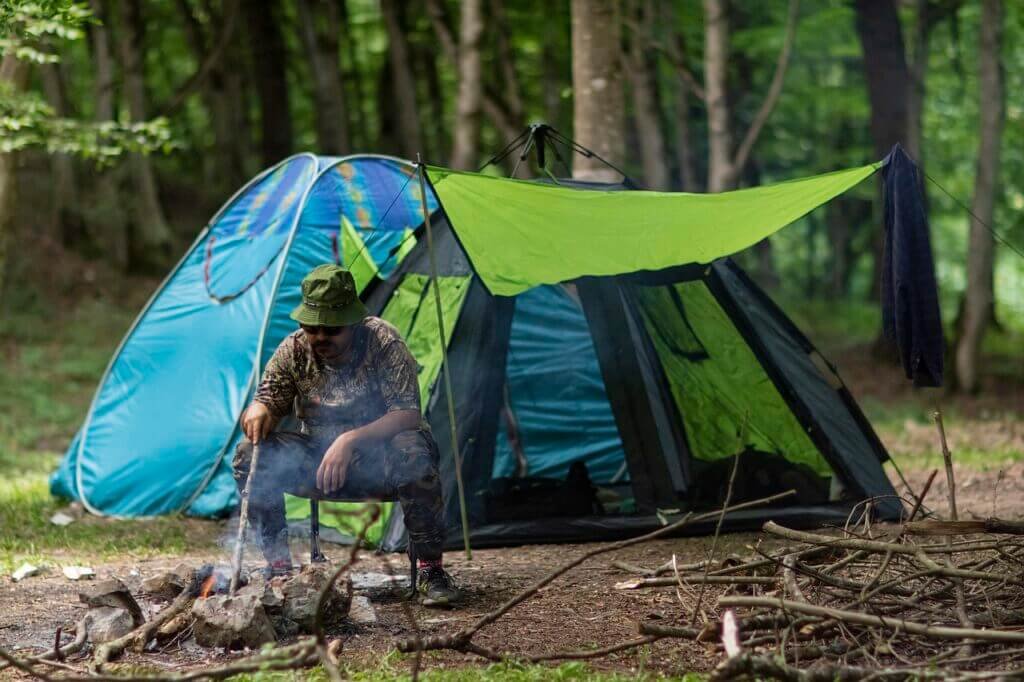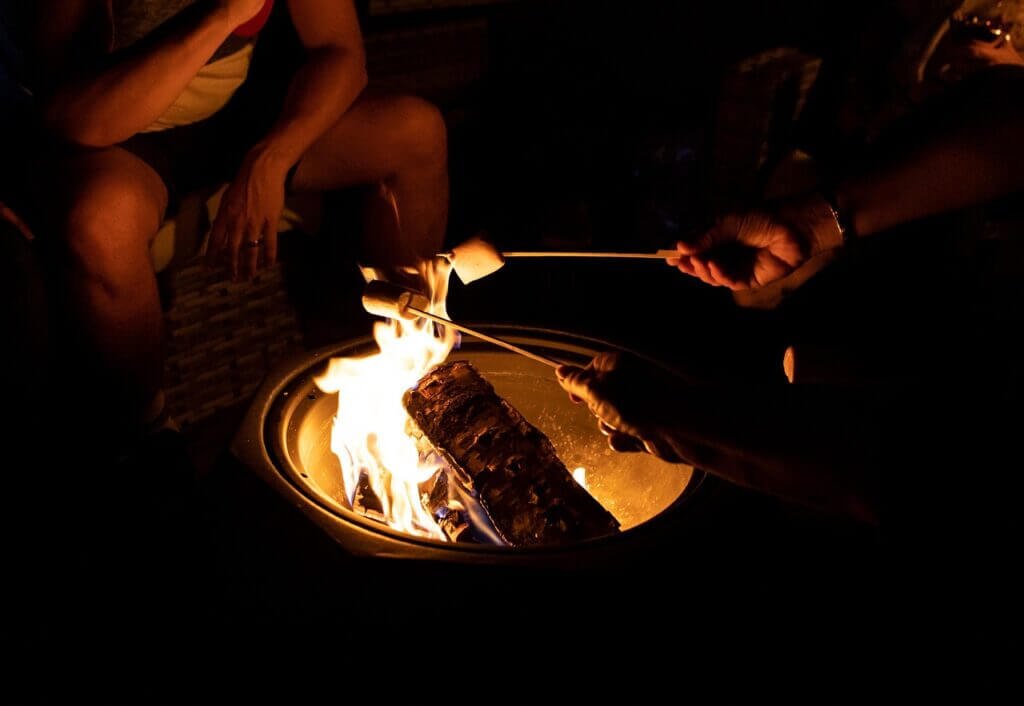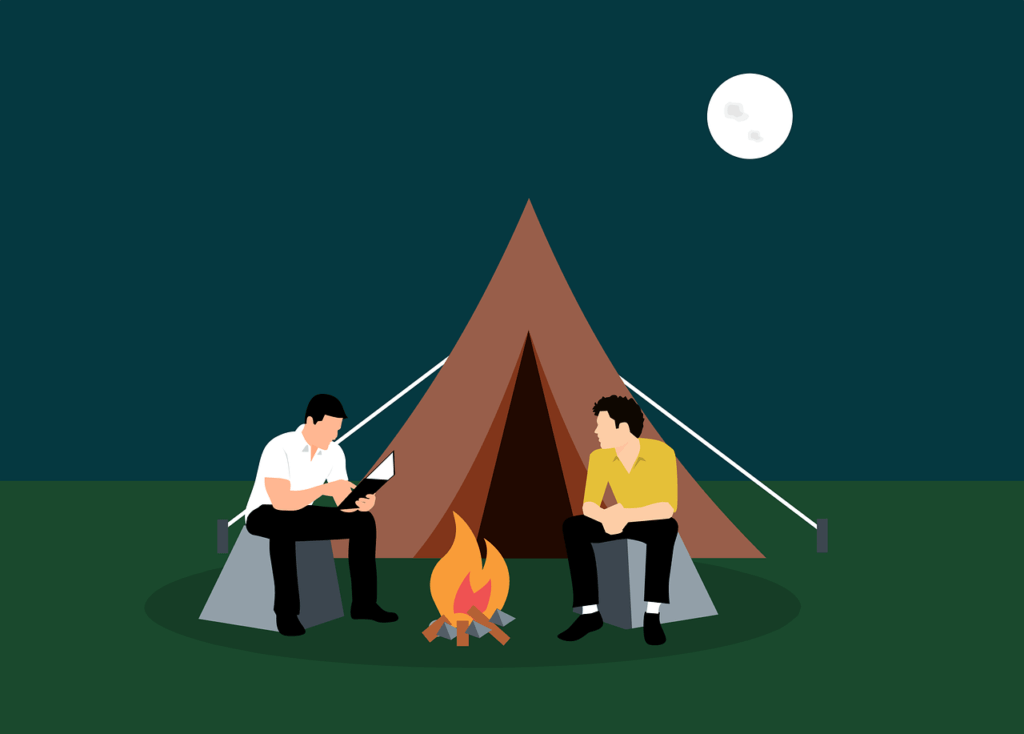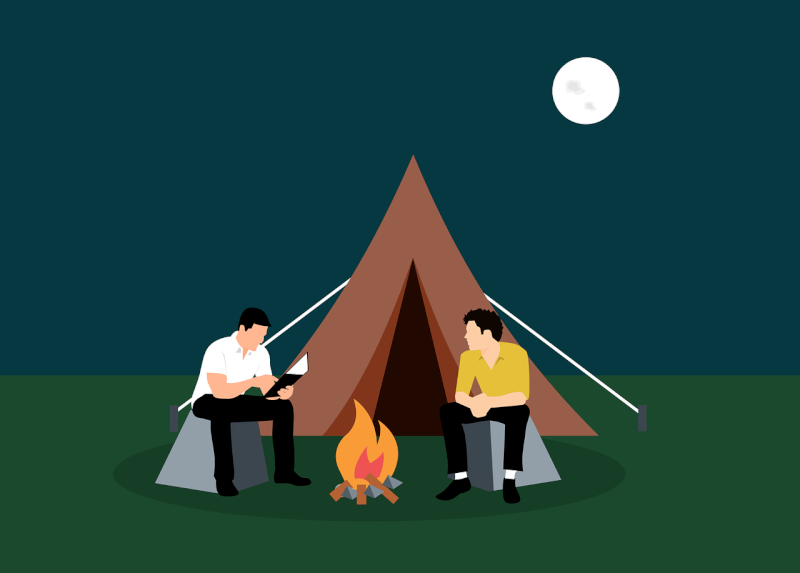Planning a camping trip during peak seasons and holidays can often be overwhelming, with the influx of fellow outdoor enthusiasts and limited availability at popular camping sites. But fear not, because we’ve got you covered! In this article, we will guide you through the essential steps and offer valuable tips to ensure a smooth and enjoyable camping experience during these busy times. So grab your pen and paper, and get ready to embark on the ultimate camping adventure!

Selecting the Destination
Researching popular camping destinations
When planning a camping trip, the first step is to research popular camping destinations. Consider the type of environment you enjoy, such as mountains, forests, or beaches. Look for destinations that offer the activities you enjoy, whether it’s hiking, fishing, or simply relaxing by the campfire. Online resources and camping forums can provide valuable insights and suggestions from experienced campers who have visited different locations.
Considering availability and accessibility
Another important factor to consider when selecting a camping destination is availability and accessibility. Look into the availability of campsites during peak seasons and holidays, as popular destinations tend to fill up quickly. Additionally, consider how easily accessible the campground is in terms of distance and transportation. If you’re traveling with children or elderly individuals, it’s important to choose a destination that is easily reachable and doesn’t require strenuous hikes or long drives.
Evaluating the amenities and facilities
Consider the amenities and facilities offered at the campgrounds you are considering. Some campgrounds provide basic facilities such as restrooms and showers, while others may offer additional amenities like swimming pools, playgrounds, or picnic areas. Depending on your preferences and needs, assess what amenities are important to you and your camping experience. Keep in mind that more amenities may come with higher campground fees, so be sure to consider your budget as well.
Choosing the Right Campground
Exploring different types of campgrounds
When it comes to campgrounds, there are a variety of options to choose from. State and national parks provide beautiful natural settings with well-maintained campsites. Private campgrounds may offer more amenities and hookups for RVs. Consider the type of camping experience you desire and explore the different types of campgrounds available in your chosen destination.
Reading reviews and gathering recommendations
To ensure the quality and suitability of a campground, take the time to read reviews and gather recommendations from fellow campers. Websites and apps dedicated to camping reviews can provide valuable insights from people who have actually stayed at the campgrounds you are considering. Pay attention to comments about cleanliness, noise levels, and the overall experience to make an informed decision.
Checking for campground reservations and policies
Once you have narrowed down your options, check for campground reservations and policies. Some campgrounds require advance reservations, especially during peak seasons and holidays. It’s important to plan ahead and secure your spot to avoid disappointment. Additionally, familiarize yourself with the campground’s policies regarding pets, quiet hours, and any other regulations they may have.

Determining the Duration
Considering available time off
Before finalizing your camping trip, consider the amount of time you have available for your adventure. Take into account any work or personal commitments and determine how many days you can comfortably spend at the campground. This will help you plan your itinerary and ensure you have enough time to fully enjoy your camping experience.
Planning around peak season and holiday dates
Peak seasons and holidays can significantly impact the availability and atmosphere of campgrounds. It’s important to plan your trip accordingly to avoid overcrowding and enjoy a more peaceful experience. If possible, consider visiting during shoulder seasons, when the weather is still pleasant but the crowds are lighter.
Factoring in travel time to and from the campground
Don’t forget to factor in travel time to and from the campground when determining the duration of your trip. Consider the distance you’ll be traveling, the mode of transportation you’ll be using, and any possible traffic or road conditions. It’s a good idea to add some buffer time to your schedule to allow for unexpected delays and ensure a stress-free journey.
Organizing Accommodations
Deciding between tent camping and RV camping
One of the first decisions you’ll need to make when organizing accommodations is whether you’ll be tent camping or RV camping. Tent camping offers a more traditional and immersive experience, while RV camping provides the convenience of amenities and mobility. Consider your budget, comfort level, and the equipment you already have before making a decision.
Renting or purchasing camping gear and equipment
Depending on your camping experience and the equipment you already possess, you may need to rent or purchase additional camping gear and equipment. Make a checklist of the essentials, such as a tent, sleeping bags, cooking utensils, and a camp stove. You can either rent these items from outdoor equipment stores or purchase them for future use.
Booking campsites or cabins in advance
To secure your accommodations, it’s essential to book campsites or cabins in advance. As mentioned earlier, popular campgrounds tend to fill up quickly, especially during peak seasons and holidays. Research the reservation policies of the campgrounds you’re interested in and make your reservations as soon as possible to ensure you have a spot.

Preparing a Comprehensive Packing List
Essential camping gear and equipment
When preparing your packing list, start with the essential camping gear and equipment. This includes items such as a tent, sleeping bags, lanterns or flashlights, and cooking utensils. Consider the specific needs of your trip and pack accordingly. Don’t forget to bring extra batteries and a portable charger for your electronic devices.
Appropriate clothing and footwear
Pack appropriate clothing and footwear for all types of weather and activities you plan to engage in. Layering is key, as temperatures can vary significantly throughout the day, especially in mountainous or coastal regions. Bring sturdy hiking boots or comfortable walking shoes, as well as rain gear and warmer clothing for cool evenings.
Food and cooking supplies
Plan your meals in advance and create a detailed shopping list for your food and cooking supplies. Depending on your preference, you can opt for simple and easy-to-prepare meals or more elaborate camping recipes. Consider any dietary restrictions or preferences of your group members and pack accordingly. Don’t forget essentials such as a cooler, cooking utensils, and food storage containers.
First aid kit and necessary medications
Safety should always be a priority when camping, so be sure to pack a comprehensive first aid kit. Include items such as band-aids, antiseptic ointment, pain relievers, and any necessary prescription medications. Additionally, carry a map of the area and a compass in case of emergencies. It’s always better to be prepared for any unforeseen circumstances.
Entertainment and recreational items
To make the most of your camping trip, pack some entertainment and recreational items. Bring books, board games, or playing cards for evening relaxation. If you enjoy outdoor activities, pack items such as fishing gear, sports equipment, or binoculars for bird watching. Remember to bring bug spray, sunscreen, and plenty of water to stay hydrated during your adventures.
Considering Safety Measures
Checking weather forecasts and potential hazards
Before heading out on your camping trip, regularly check the weather forecasts for your chosen destination. This will help you pack appropriate clothing and gear, and prepare for any potential weather hazards. Be aware of any weather warnings or advisories and plan accordingly to ensure your safety and enjoyment.
Educating yourself about wildlife encounters
If you’re going camping in a natural environment, it’s important to educate yourself about potential wildlife encounters. Research the local wildlife and learn how to properly store food and dispose of waste to minimize the risk of attracting animals. Familiarize yourself with safety procedures in case of encountering wildlife and always respect their space.
Respecting fire safety and regulations
Campfires are a quintessential part of the camping experience, but it’s crucial to adhere to fire safety regulations to prevent accidents and protect the environment. Check with the campground about any fire restrictions or bans in place and follow their guidelines for safe campfire practices. Ensure that your campfire is completely extinguished before leaving the site or going to sleep.
Keeping emergency contacts and communication devices
In case of emergencies, it’s important to have access to communication devices and emergency contacts. Keep a list of emergency numbers, including the campground’s contact information and the nearest medical facilities. If you’re camping in an area with limited cell service, consider bringing a satellite phone or a two-way radio for reliable communication.
Planning Activities and Itinerary
Researching recreational opportunities in the area
One of the most exciting aspects of planning a camping trip is researching the recreational opportunities in the surrounding area. Look for hiking trails, fishing spots, boating or kayaking areas, or any other activities that interest you. Take note of any permits or fees required for specific activities and plan accordingly.
Making a list of hiking trails and attractions
Create a list of hiking trails and attractions you want to visit during your camping trip. Research the difficulty level and length of each trail to ensure they are suitable for everyone in your group. Take note of any special equipment or permits required for certain hikes and plan your itinerary accordingly.
Creating a flexible schedule for different activities
While it’s important to have an itinerary, allow for some flexibility in your schedule to accommodate unexpected discoveries or changes in weather. You may come across hidden gems or decide to spend more time at a particular attraction. Having a flexible schedule will allow you to fully enjoy your camping experience without feeling rushed or restricted.
Allowing time for relaxation and enjoying nature
Amidst all the activities and planning, don’t forget to allow time for relaxation and simply enjoying nature. Sit by the campfire, read a book, or take a leisurely stroll around the campground. Connect with your surroundings and take in the peacefulness and beauty of nature. Remember, camping is not only about the activities, but also about recharging and finding peace in the great outdoors.
Meal Planning and Cooking
Creating meal plans and shopping for groceries
Before your camping trip, create meal plans and make a list of all the groceries you’ll need. This will ensure that you have enough food and prevent wastage. Consider the number of people in your group, their dietary restrictions or preferences, and the available cooking equipment. Plan for easy and nutritious meals that can be prepared with minimal effort.
Considering dietary restrictions and preferences
When meal planning, be mindful of any dietary restrictions or preferences within your group. Make sure to have vegetarian or vegan options, accommodate any food allergies, and consider the preferences of children or picky eaters. Camping should be enjoyable for everyone, and having a variety of meal options will enhance the overall experience.
Packing necessary cooking equipment and utensils
Don’t forget to pack all the necessary cooking equipment and utensils for your camping trip. This includes pots, pans, cooking utensils, a camp stove or grill, and any other tools you might need. It’s also important to bring cleaning supplies for washing dishes and maintaining proper hygiene while cooking.
Enlisting help and dividing meal responsibilities
To make meal preparation more enjoyable and share the workload, consider enlisting help from your camping buddies. Divide the meal responsibilities among member of your group so that everyone gets a chance to contribute. This not only lightens the load but also creates bonding opportunities and fosters a sense of togetherness during meal times.
Understanding Campground Etiquette
Respecting quiet hours and fellow campers
Respect for fellow campers is crucial when it comes to campground etiquette. Familiarize yourself with the quiet hours set by the campground and ensure that you keep noise levels to a minimum during those times. Be mindful of your neighbors’ privacy and personal space, and avoid activities that may disturb others, such as loud music or excessive noise.
Proper waste disposal and minimizing impact
Practice proper waste disposal and take measures to minimize your impact on the environment during your camping trip. Use designated trash and recycling bins, and pack out any trash that cannot be disposed of at the campground. Leave nature as you found it, respecting the flora and fauna and not damaging or disturbing the natural surroundings.
Following campground rules and regulations
Each campground has its own set of rules and regulations that are meant to ensure the safety and enjoyment of all campers. It’s essential to familiarize yourself with these rules and comply with them during your stay. From leash rules for pets to speed limits within the campground, following these regulations not only helps maintain order but also promotes a harmonious camping environment.
Finalizing and Confirming Reservations
Double-checking campsite reservations and details
Before embarking on your camping trip, double-check your campsite reservations and details. Ensure that all the information, such as dates, campground location, and site number, is accurate. Contact the campground if you have any questions or concerns, and confirm any additional fees or policies that may be relevant to your reservation.
Verifying campground rules and cancellation policies
Along with double-checking your reservations, take the time to verify the campground’s rules and cancellation policies. Understand any penalties or restrictions that may apply to changes or cancellations of your reservation. This will give you peace of mind and prevent any unpleasant surprises should you need to make adjustments to your plans.
Confirming rental equipment or services
If you’ve rented any camping gear or equipment, confirm the details of your rental with the provider. Ensure that your rented items will be available for pick-up or delivery as per your reservation. If you’ve booked any additional services, such as guided tours or boat rentals, verify the details and timing to avoid any inconvenience during your camping trip.
By following this comprehensive article, you’ll be well-prepared to plan a memorable camping trip during peak seasons and holidays. From selecting the destination to finalizing reservations, every step is covered to ensure a successful and enjoyable outdoor adventure. Happy camping!


